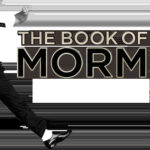Is the vocalist the defining element in dance music? This debate sparked some passionate discussions at Slant Magazine when we compiled our list of the 100 Greatest Dance Songs. While no one argued that the singer was always the most important aspect, some of us believed vocals held equal weight with beats and basslines. I confess, I was initially in the camp prioritizing the instrumentals. However, comparing Blue Songs to Hercules and Love Affair’s earlier, self-titled album, which achieved significantly more success, gives me pause – especially on the dance floor, where hesitation can be detrimental to the experience.
My introduction to Antony Hegarty’s distinctive vocals was through Björk’s Volta, and his demon cabaret style has always been a point of fascination. The sharp enunciation, the confident melodrama, the sheer, drawn-out presence – it’s a vocal style that demands attention and cannot be easily ignored. Hegarty’s contributions to Hercules and Love Affair were monumental. He provided a crucial, postmodern twist on the legacies of vocalists like Jocelyn Brown, filtered through an Amanda Lear lens. His song “Blind” stands as an astrologically grand, disco ball-lit anthem of reluctant isolation. It works brilliantly in its original late-’80s pseudo-synth-pop album version and equally well in Frankie Knuckles’ expansive house remix. The success of “Blind” stemmed from Antony’s intensely intimate voice, which elevated the song’s central metaphor beyond mere imagery, transforming it into a palpable representation of the closeness Antony desires but cannot quite attain. These iconic Hercules Songs owe much of their impact to Hegarty’s vocal performance.
Production-wise and structurally, Blue Songs doesn’t represent a significant decline from those earlier high points. DJ Andy Butler’s sonic signature remains authentic, even as he broadens his scope beyond the no wave influences explored in the previous album. The rhythm guitar counterpoint in “Answers Come in Dreams” clearly draws inspiration from Larry Levan’s remix of Gwen Guthrie’s “Peanut Butter.” “Step Up” captures the essence of early Chicago house, a near-perfect, if somewhat generic, approximation of the genre’s raw musicianship, aided by Kele Okereke. “My House” features a compelling, hollow bassline reminiscent of Adonis’ productions. And the urgent electro-balladry of “Boy Blue” seems more indebted to the Chemical Brothers than to Blondie or Cristina. These instrumental tracks showcase Butler’s continued prowess in crafting compelling soundscapes within the Hercules songs catalog.
However, Blue Songs lacks that compelling vocal presence that teeters between sublime and abrasive, a quality found in so many standout performances in dance music history. I find myself more engaged wrestling with my complicated feelings about Antony’s delivery in “Blind” than absorbing an album where the comparative high point is the somewhat lackluster mantra, “Don’t keep me in the dark, I want devotion” from “I Can’t Wait.” As the album’s closing track suggests, “It’s Alright,” but the standard set by Hercules and Love Affair’s previous work was too elevated for this album to truly sustain the energy of a perpetual 4 a.m. on the dance floor. While the instrumentals within Blue Songs contribute to the broader spectrum of Hercules songs, the absence of a dominant vocal force leaves a noticeable void.
Score:
Label: Moshi Moshi
Release Date: January 31, 2011
Buy: Amazon
If you value insightful music journalism, please consider supporting Slant Magazine. Since 2001, we have been committed to providing you with uncompromising and honest perspectives on film, music, television, video games, theater, and more. Independent publications like Slant have faced significant challenges in recent years, and we are dedicated to keeping our content accessible to all, without paywalls or fees. If you appreciate our work, we encourage you to subscribe to our Patreon or make a donation.


